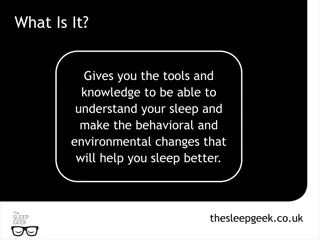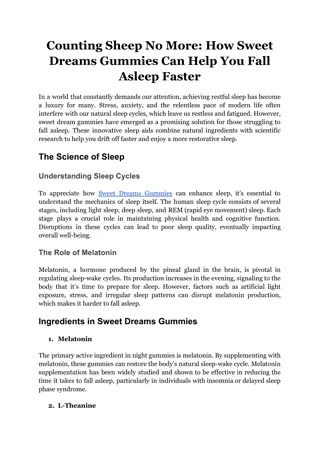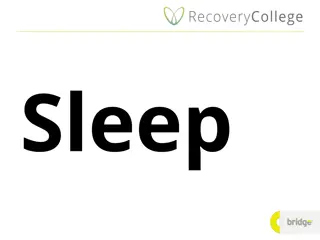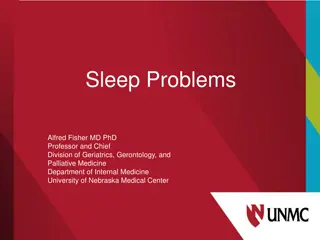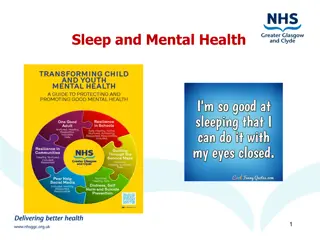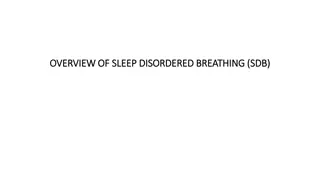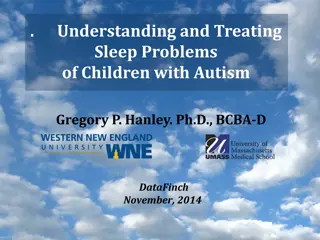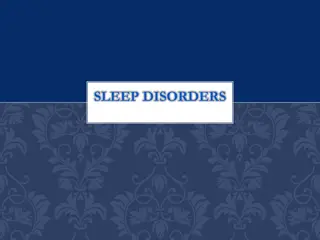The Importance of Sleep for Health and Well-being
Sleep plays a crucial role in various aspects of our health, including brain function, learning, memory, and physical well-being. It is essential for growth, healing, immune function, and maintaining a healthy weight. Not getting enough sleep can lead to various issues such as mood swings, cognitive problems, obesity, and increased risk of chronic diseases. Establishing good sleeping habits, such as consistent bedtime routines and creating a suitable sleep environment, is key to promoting healthy sleep patterns.
Download Presentation

Please find below an Image/Link to download the presentation.
The content on the website is provided AS IS for your information and personal use only. It may not be sold, licensed, or shared on other websites without obtaining consent from the author.If you encounter any issues during the download, it is possible that the publisher has removed the file from their server.
You are allowed to download the files provided on this website for personal or commercial use, subject to the condition that they are used lawfully. All files are the property of their respective owners.
The content on the website is provided AS IS for your information and personal use only. It may not be sold, licensed, or shared on other websites without obtaining consent from the author.
E N D
Presentation Transcript
SLEEP Why is it so important??
What is sleep? What happens while we sleep? Sleep is divided in to two states of sleep: Non-Rapid eye movement (NREM): Blood supply to muscles are increased. Energy is restored. Tissue growth and repair occurs. Important hormones for growth and development are released. Rapid eye movement (REM): Dreaming occurs. Experiences from the day are being processed. The brain is active.
Why is sleep so important? Sleep helps your brain work efficiently. Sleep helps you form new pathways to help you learn and remember information. Sleep helps you to enhance learning and problem- solving skills. Sleep is involved in healing and repairing your heart and blood vessels. Your immune system relies on sleep to stay healthy. Sleep helps your body recover. Sleep is especially important for children as it directly impacts mental and physical development.
How much sleep is needed? Children age 5-12 need 10-11 hours of sleep. Teenagers need 9-10 hours of sleep. Adults need 7 8 hours of sleep.
What happens when we do not get enough sleep? Short sleep duration in the first 3 years of life was associated with hyperactivity/impulsivity and lower cognitive performance on neurodevelopmental tests at age 6. Obtaining insufficient sleep during first few years of life may have long-standing consequences. Poor and inadequate sleep can lead to mood swings and behavioral problems such as hyperactivity and cognitive problems that impact children s ability to learn in school. Observations of association between inadequate sleep in children and higher rates of problems with attention, behavior, emotions and academic difficulties. Long term effects of insufficient or disturbed sleep in children may have important long term effects on their learning. Sleep deficiency increases the risk of obesity. Fx. Each hour of sleep lost odds of becoming obese went up. The immune system relies on sleep to stay healthy. People with sleep deficiency has a higher risk of developing heart disease, high blood pressure, infertility and diabetes.
Recommendations for good sleeping habits Educate children and parents about good sleep habits. Regular consistent sleep and bedtime routines are recommended. The bedroom should be kept dark, cool and quiet. No food or drinks containing caffeine before bedtime. TV and computers should not be kept in the bedroom. Watching TV close to bedtime is discouraged, as this increases bedtime resistance, difficulty falling asleep, anxiety around sleep and the child sleeps fewer hours.
Resources National Sleep Foundation www.sleepfoundation.org American Academy of Sleep Medicine www.journalsleep.org NIH-National Heart, Lung and Blood Institute www.nhlbi.nih.gov Neuroscience for kids faculty.washington.edu/chudler/neurok.html Sleep. 2007 September 1; 30 (9): 1079-1080 Ronald E. Dahl, MD.: Sleep and the Developing Brain.
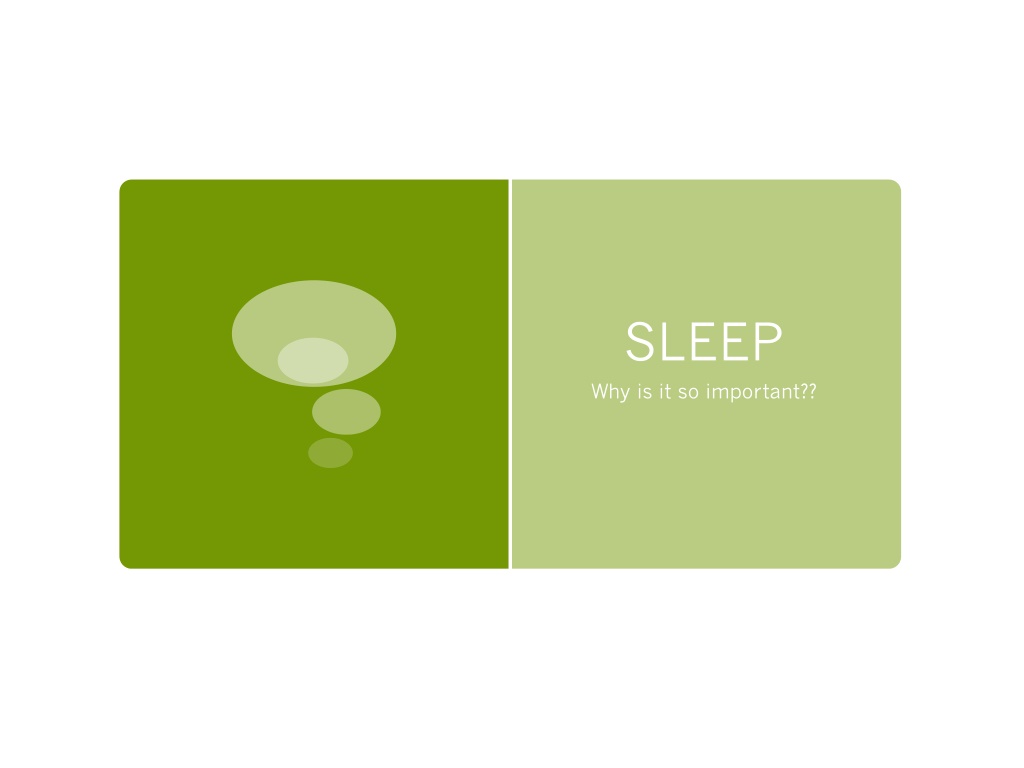
 undefined
undefined








